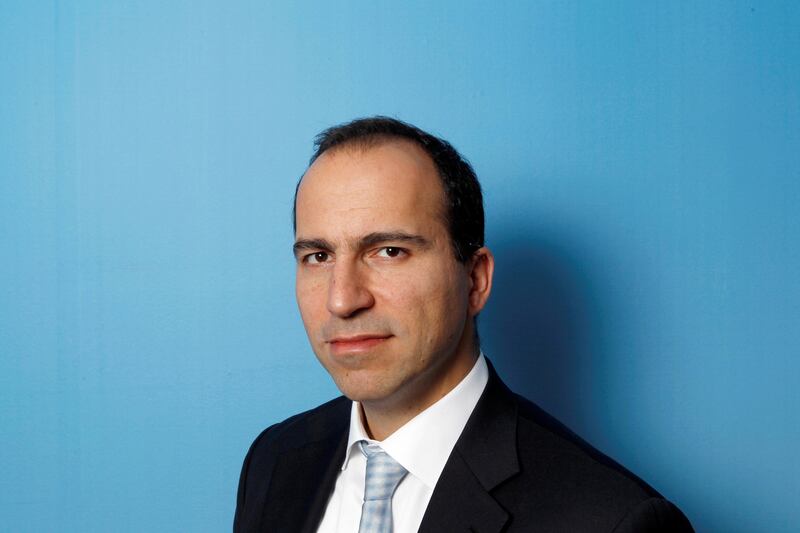The board of Uber Technologies, including two new appointees of former chief executive Travis Kalanick, will meet on Tuesday to consider proposals that diminish the co-founder’s influence, strip early investors of super voting power and secure a multibillion-dollar investment, sources said.
Proponents of the measures believe they can prevail on each issue, despite the addition to the board of two new directors named by Mr Kalanick and a legal threat from early investors, two people familiar with the matter said.
Mr Kalanick, ousted by investors in June, contends that fellow Uber board members are moving too fast on a dramatic restructuring and wants to delay a decision on governance changes, another source said. It is not clear how many measures will be voted on Tuesday.
The proposals are the latest flashpoint between Mr Kalanick and Uber investors spearheaded by Silicon Valley’s Benchmark, which led the board revolt against Mr Kalanick. Directors are divided about what role he should play and whether he should retain control over a large part of the board.
The company is seeking to shore up its reputation after a series of scandals. Proponents believe the proposals would improve corporate governance ahead of an expected initial public offering and illustrate the support of major new investors - SoftBank Group and growth-oriented investor Dragoneer Investment.
Uber’s new chief executive, Dara Khosrowshahi, last week proposed cutting the number of board seats controlled by Mr Kalanick to one from three, raising the seats effectively controlled by Mr Khosrowshahi to five from one, and eliminating super voting rights, which give early shareholders multiple votes per share.
A second proposal, which proponents intend to be linked to the first, would allow internet firm SoftBank and Dragoneer to invest around US$10 billion in Uber, two sources said.
That would include about $1bn in new Uber shares at the current $68bn valuation, with the rest earmarked for buying shares from current investors at a discount, the sources said. It is not clear how many shares current investors would sell at the terms discussed.
Mr Kalanick responded to the proposals on Friday by appointing former the Xerox chief executive Ursula Burns and the former Merrill Lynch chief executive John Thain to fill two open director seats. Benchmark and others have legally challenged his ability to name the directors.
Ms Burns and Mr Thain took their seats on Monday and will be eligible to vote at Tuesday’s board meeting in San Francisco, three people said.
Read more:
London Uber ban: Everything you need to know
Saudi women drivers set to boost Toyota, Hyundai and Uber
Uber claims Paris prosecutors bent rules for criminal conviction
Still, if the changes in voting control pass, the company could face a legal roadblock. Venture capitalist Shervin Pishevar, investor Stephen Russell and other shareholders threatened on Monday to sue directors who voted for the plan, including Mr Kalanick.
Super voting rights are valuable and important for holding the company accountable, they said. Stripping the rights without consent is unfair, according to a letter seen by Reuters from the attorney Mark Geragos to Uber board members Mr Kalanick, Garrett Camp and Ryan Graves.
Each of them stand to lose voting power because they hold shares that carry more than one vote a piece. Although unlikely to make all the concessions sought by fellow board members, Mr Kalanick has shown willingness to cut super voting rights in the name of strengthening governance, a source said.
“Our clients are confident that, following sober reflection, you will avoid this ill-advised misadventure,” Mr Geragos wrote.
Switching to a one-vote-per-share policy could remove one reason for investors to hold on to Uber shares, creating more demand for SoftBank’s purchase offer. It could also help Uber, if it goes public, avoid being barred from the S&P 500 and other stock indexes that this year instituted rules against unequal voting rights.
Goldman Sachs, acting as a financial adviser to Uber’s board, has been working for weeks since an initial agreement with SoftBank to amass the shareholder proxies and support necessary to move forward with the transaction, according to a source.
Mr Khosrowshahi, who is meeting London’s transportation regulator on Tuesday to appeal the non-renewal of Uber’s operating licence in the city, is expected to call into the board meeting, a source said.





